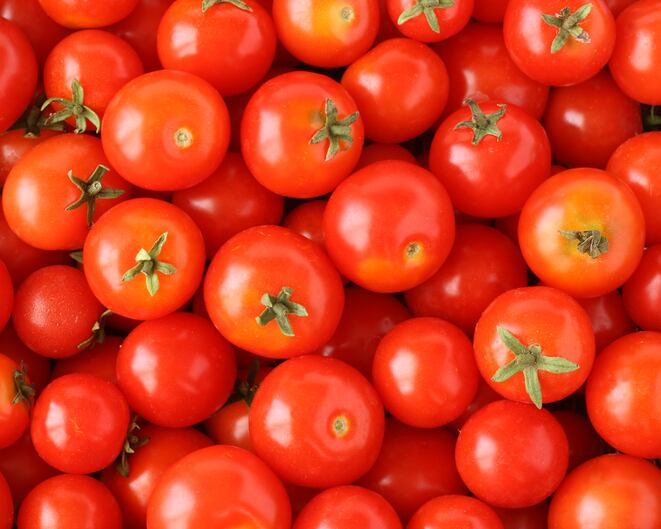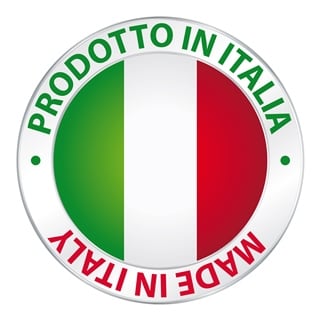Agriculture minister Maurizio Martina said on Monday (4 September) he was working with the minister of economic development Carlo Calenda to extend mandatory origin labelling to processed tomatoes and tomato-based products.
The move comes just weeks after Italian authorities unveiled a decree implement a two-year trial for mandatory origin labelling for pasta and rice, requiring manufacturers to indicate the country of origin of the grains used to manufacture processed rice and pasta items on packaging.
Italy also has origin labelling for dairy products.
The move is intended to counter growing competition coming from imports of Chinese tomato puree which, according to Coldiretti, the association that represents the Italian agricultural sector, increased by 43% in 2016.
Further fragmentation
Manufacturing trade group FoodDrinkEurope (FDE) warned of the dangers it presented to the single market. "This national unilateral initiative is yet another step towards the further fragmentation of the EU Single Market for foods, one of the core foundations of the European Union. [...] This will negatively affect the competitiveness of the

relevant food sectors, undermine the smooth functioning of the single market, and hamper intra-EU and international trade," a spokesperson said.
"The situation is no longer tenable for producers who are facing ever more additional burdens and barriers to trade."
However, Coldiretti welcomed the announcement. “In the face of the uncertain and contradictory attitude of the European Union, which has authorised origin labelling for eggs but not egg products, for fresh meat but not processed or for fresh fruit but not juices […], Italy, a European leader in transparency and quality, has the duty to act as a food policy pioneer,” it said in a statement published on its Italian website.
Senior food policy officer for EU consumer group BEUC Camille Perrin said Martina's decree was a "good move" for consumer clarity. “It's only fair for consumers to know if tomatoes in a sauce marketed as "made in [country X]" come from another country,” she tweeted.
Not in line with EU law
Food industry consultant and legal expert Luca Bucchini slammed the protectionist measures.
“The recent pattern of legislative activity by Italy's Ministry of Agriculture, Mr Martina, on origin labelling of ingredients are not in line with EU law, and not backed by impact assessments. Without impact assessments, it is unclear if they are beneficial to Italy's economy,” he said.
The country’s farming sector believes that mandatory origin labelling will stamp out the practice whereby many foods marketed and sold as ‘made in Italy’ do not use

Italian ingredients (even though they have been manufactured or processed in Italy).
Coldiretti denounced this practice as allowing “a river of tomatoes that is then sold to the world as Italian for the lack of a mandatory labelling system”.
But leading Italian manufacturers such as Barilla have said in the past that Italy simply does not grow enough raw materials – be it wheat for pasta or milk for cheese – to meet demand.
Bucchini echoed this, saying that while the rules may help farmers, they will create problems for Italy's food industry.
“If Italy's food industry relied on Italian farms only for ‘made in Italy’ food, its market size would shrink. Much Italian olive oil is not from Italian olives, for instance,” he said.
No notification
Italy has also ignored EU rules which require member states to notify the Commission of any planned national legislation. This allows other member states to study the proposed law and raise objections or make comments for the Commission to consider.
The decree on durum wheat, for instance, raised objections from 11 member states.
However, a Commission spokesperson confirmed to FoodNavigator that it was not informed of the tomato decree and this, according to Bucchini, means it is likely to be inapplicable under EU law.
Copycat COOL?
France was the first country in the EU to bring in mandatory country of origin labelling for processed dairy and meat products which was permissible under EU law for a three-year trial period. The move sparked a number of countries to follow suit, with Greece, Finland and Portugal all notifying the Commission of origin labelling trials for meat and/or dairy.
But Bucchini believes this time there won’t be the same ‘copycat’ action. “I think there is growing consensus that Italy has gone too far […) so rather than copycats we are likely to see more opposition and the EC stepping in,” he said, adding that – with Italian elections drawing closer – the decree may be an exercise in winning votes among Italy’s significant farming community.
